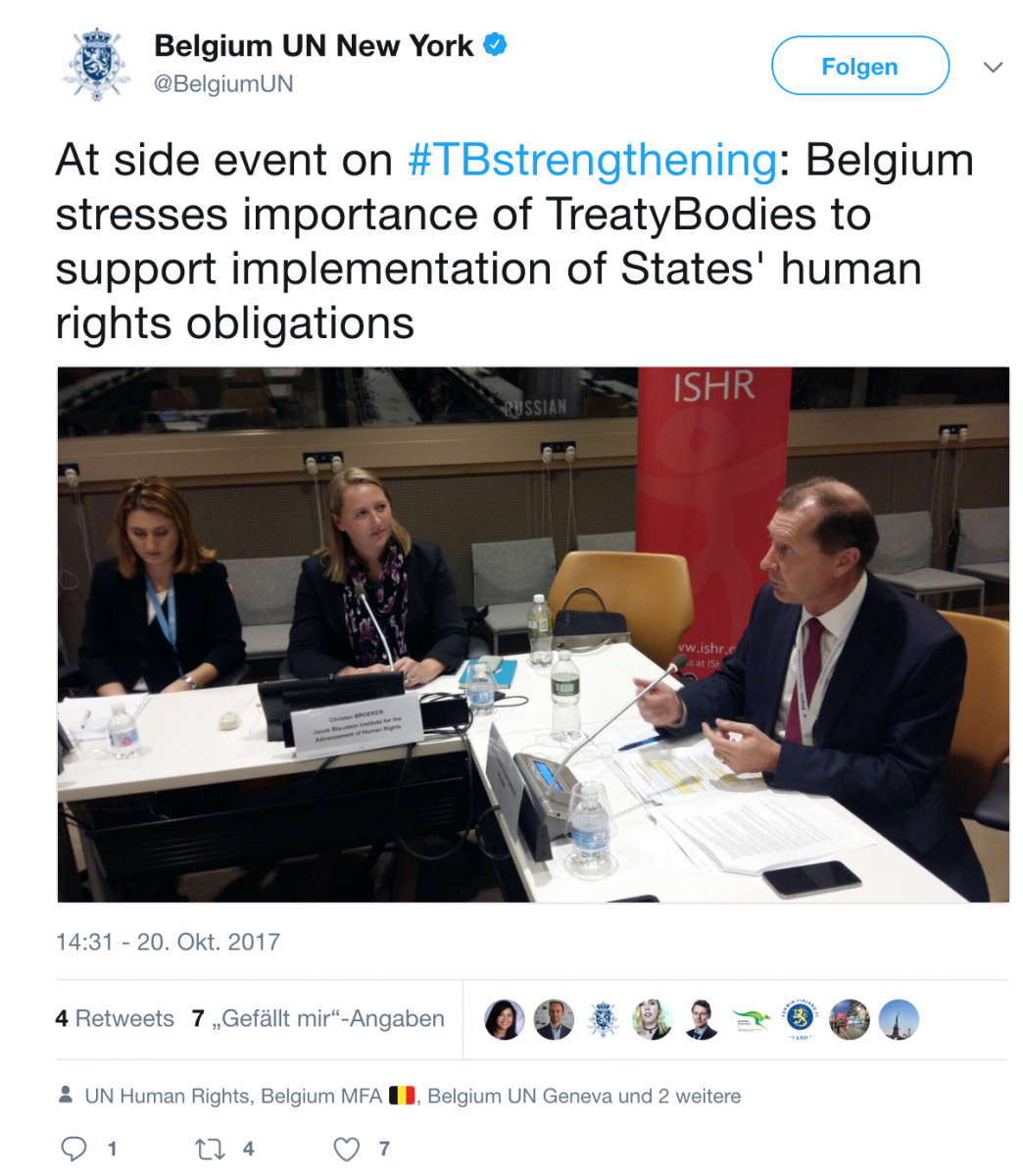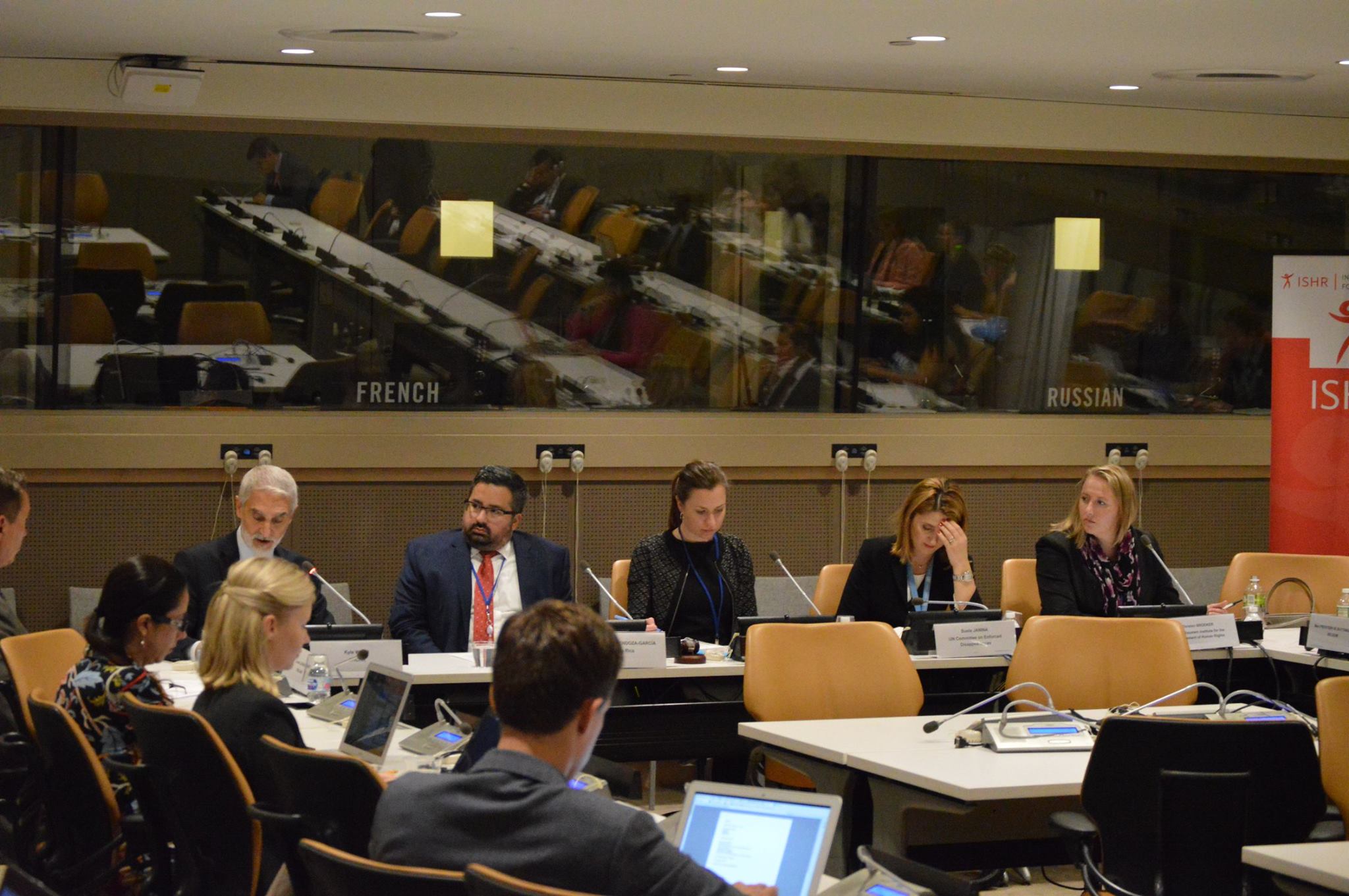On 20 October 2017, ISHR organised the side event ‘Towards effective, accessible and protective treaty bodies’, which was co-sponsored by the Missions of Finland, Belgium, and Costa Rica. Panellists, including a treaty body chair and representatives of States, civil society, and OHCHR, discussed developments to date in strengthening treaty bodies and maximising their effectiveness. The event concluded with an examination of where to go from here.
.png)
Successes of treaty bodies
Treaty bodies are committees of independent experts that monitor the compliance and implementation of core international human rights instruments. You can find an introduction to treaty bodies here.
Panellists and audience members discussed successes of the treaty body system, including:
- constructive dialogue between States and committees
- implementable concluding observations
- greater engagement between treaty bodies and national human rights institutions
- greater treaty ratification by States
- increased interest in national reporting and implementing mechanisms.
Strengthening treaty bodies
Christen Broecker, Deputy Director of the Jacob Blaustein Institute for the Advancement of Human Rights, noted that efforts to strengthen the treaty bodies to date lacked sufficient input from civil society.
‘The platform for civil society engagement has been limited and the processes not fully transparent. It is a disservice to people seeking to use the treaty body system to be divorced from momentous conversations about their future,’ said Broecker.
Looking ahead
The General Assembly resolution 68/268 foreshadows a formal review of the treaty body system in 2020. There was agreement among all panellists of the need for a transparent multi-stakeholder approach that includes States, academia, civil society, national human rights institutions, experts, and treaty bodies.
‘It is essential that in strengthening the effectiveness of the treaty bodies, they remain independent and that the protection of rights holders and enhanced implementation of treaty obligations remain the centre of the process’, said ISHR’s Legal Counsel Tess McEvoy about the stakes of the upcoming review.

Potential challenges to treaty body funding
The treaty bodies face significant challenges, especially as a result of limited resources. Resolution 68/268 sets out a formula which determines the allocation of funds to treaty bodies over time, influenced by engagement with the bodies. Notwithstanding this, at this session of the Fifth Committee of the General Assembly the application of this formula is likely to be discussed. Members will decide whether States need to adopt a resolution re-authorising funding for the treaty bodies every biennium, including in 2018, and in advance of the 2020 review.
‘We urge all States to support the intention behind resolution 68/268, and take an active role in discussions at the Fifth Committee. It is integral that the treaty bodies are sufficiently funded if they want to have any chance at ensuring the protection of fundamental human rights,’ added McEvoy.
The current allocation of resources means individual complaints received are backlogged. Suela Janina, Chair of Committee on Enforced Disappearances, noted that ‘a loss of resources, including as a result of discussions at the Fifth Committee, would jeopardise the activities of treaty bodies as well as gains made to date’.
Want to find out more about the treaty body strengthening event? Find the webcast of the event here and more information under the hashtag #TBstrengthening on Twitter.
Contact: Tess McEvoy, [email protected]
Photo: ISHR and Twitter



.png)


